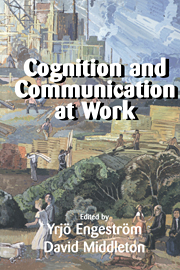Creating Conspiracy Beliefs
How Our Thoughts Are Shaped
- Authors:
- Dolores Albarracin, University of Illinois, Urbana-Champaign
- Julia Albarracin, Western Illinois University
- Man-pui Sally Chan, University of Illinois, Urbana-Champaign
- Kathleen Hall Jamieson, University of Pennsylvania
- Date Published: November 2021
- availability: Available
- format: Paperback
- isbn: 9781108965026
Paperback
Other available formats:
Hardback, eBook
Looking for an inspection copy?
This title is not currently available on inspection
-
Conspiracy theories spread more widely and faster than ever before. Fear and uncertainty prompt people to believe false narratives of danger and hidden plots, but are not sufficient without considering the role and ideological bias of the media. This timely book focuses on making sense of how and why some people respond to their fear of a threat by creating or believing conspiracy stories. It integrates insights from psychology, political science, communication, and information sciences to provide a complete overview and theory of how conspiracy beliefs manifest. Through this multi-disciplinary perspective, rigoros research develops and tests a practical, simple way to frame and understand conspiracy theories. The book supplies unprecedented amounts of new data from six empirical studies and unpicks the complexity of the process that leads to the empowerment of conspiracy beliefs.
Read more- Explains why people accept conspiracy beliefs and what role the media plays
- Examines conspiracy theories that are prevalent in the US and around the world
- Provides full data from six original case studies
Reviews & endorsements
'A deep social psychological analysis of why so many Americans subscribe to false conspiratorial beliefs is long overdue. Finally, it has arrived! In several landmark studies, Dolores Albarracín and her colleagues find that personal anxiety and exposure to conservative media, which exacerbates feelings of anxiety, drive paranoid thinking about matters of politics and public health. The question now is how to calm everyone down and re-establish some semblance of reality-based consensus in our society before it is too late.' John T. Jost, New York University, USA
See more reviews'Creating Conspiracy Beliefs: How Our Thoughts are Shaped is a brilliant monograph reporting an extensive research program that probed the origins of conspiracy beliefs. The authors introduce a social psychological theory that grounds such beliefs in social influence and psychological motivations that are fueled by anxiety and repetitious communicative content. Evidence for the importance of these processes emerges from well-designed surveys, experiments, and analyses of social media data. The result is a wide-ranging analysis that illuminates the prevalence of conspiracy beliefs.' Alice H. Eagly, Northwestern University, USA
Customer reviews
Not yet reviewed
Be the first to review
Review was not posted due to profanity
×Product details
- Date Published: November 2021
- format: Paperback
- isbn: 9781108965026
- length: 200 pages
- dimensions: 231 x 153 x 13 mm
- weight: 0.5kg
- availability: Available
Table of Contents
Preface
1. Introduction
2. A framework for understanding how conspiracy beliefs are created
3. The consequences of conspiracy beliefs
4. Anxiety, psychological motivations, and conspiracy beliefs
5. Socio-political factors and conspiracy beliefs
6. The relation between media and anxiety
7. The influence of norms and social networks on conspiracy beliefs
8. Influences of media and anxiety in a psychological and sociopolitical context
9. Conclusions
Appendix.-
General Resources
Find resources associated with this title
Type Name Unlocked * Format Size Showing of
This title is supported by one or more locked resources. Access to locked resources is granted exclusively by Cambridge University Press to lecturers whose faculty status has been verified. To gain access to locked resources, lecturers should sign in to or register for a Cambridge user account.
Please use locked resources responsibly and exercise your professional discretion when choosing how you share these materials with your students. Other lecturers may wish to use locked resources for assessment purposes and their usefulness is undermined when the source files (for example, solution manuals or test banks) are shared online or via social networks.
Supplementary resources are subject to copyright. Lecturers are permitted to view, print or download these resources for use in their teaching, but may not change them or use them for commercial gain.
If you are having problems accessing these resources please contact [email protected].
Sorry, this resource is locked
Please register or sign in to request access. If you are having problems accessing these resources please email [email protected]
Register Sign in» Proceed
You are now leaving the Cambridge University Press website. Your eBook purchase and download will be completed by our partner www.ebooks.com. Please see the permission section of the www.ebooks.com catalogue page for details of the print & copy limits on our eBooks.
Continue ×Are you sure you want to delete your account?
This cannot be undone.
Thank you for your feedback which will help us improve our service.
If you requested a response, we will make sure to get back to you shortly.
×





